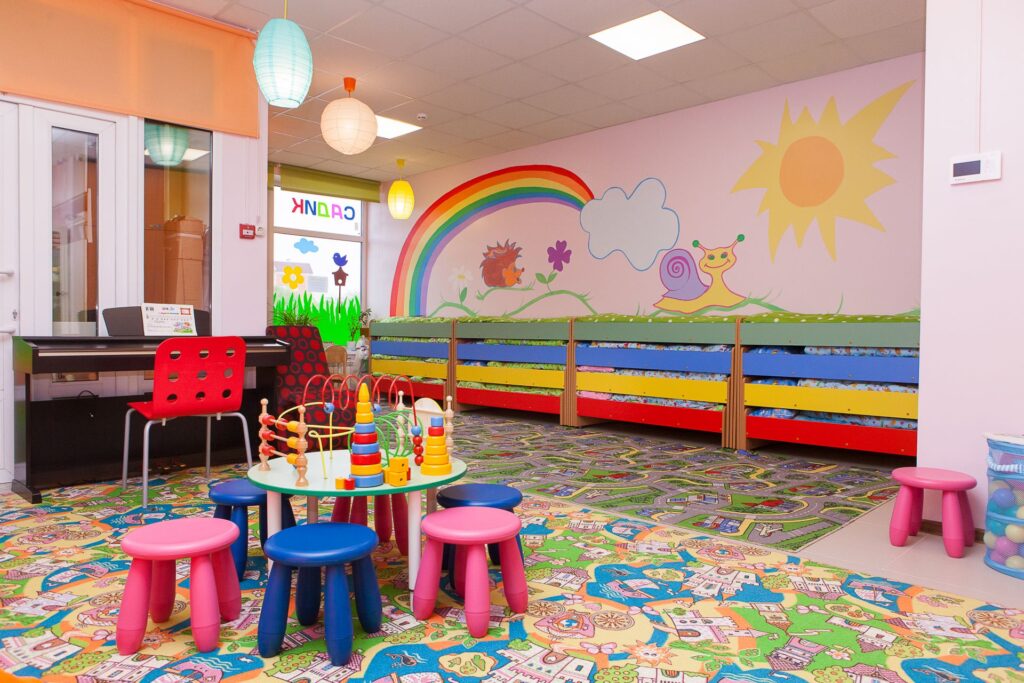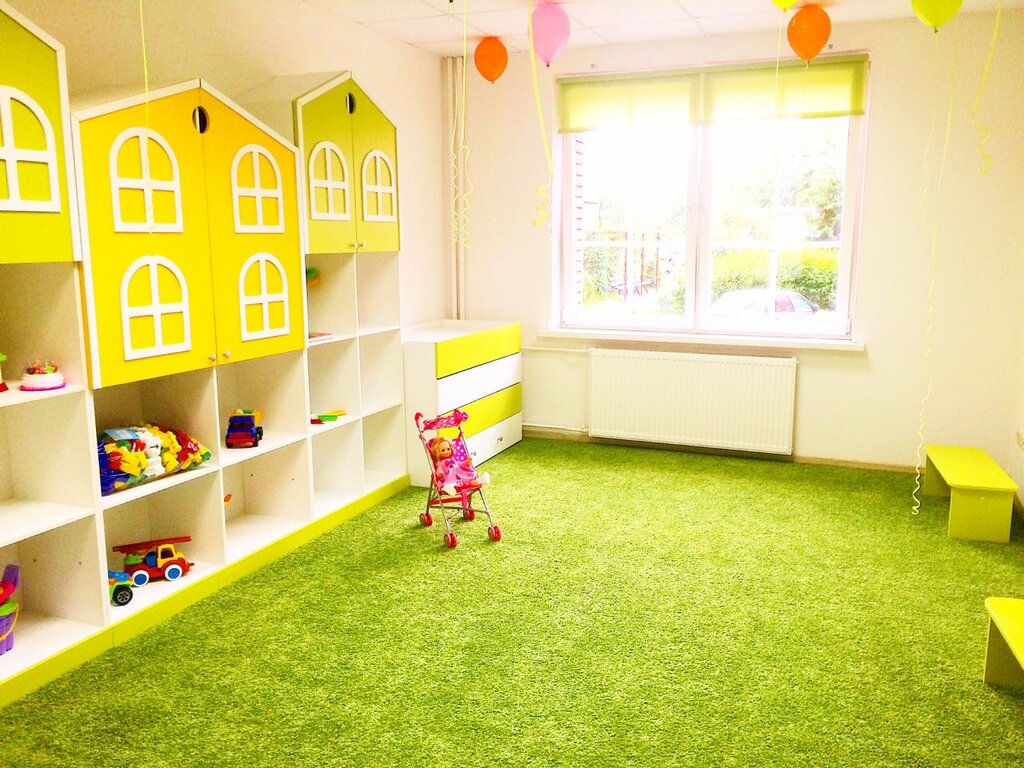As a rule, the decision that a child will go to kindergarten is not made spontaneously by parents. This becomes known at least in a few months. Therefore, responsible parents have in stock 2-3 months, so as not to rush to prepare the baby to kindergarten.
Of course, kindergarten is not a school, and the child does not require special knowledge. But parents should take care to facilitate his first experience of communication in the team. That the baby was easier to adapt, in advance:
Get your child used to the daily routine that is set in the kindergarten of your choice;
give your child basic self-care skills;
teach your child to communicate with other children and carers.
Why is the mode so important
Even if a certain regime in your family is not accepted or is not successful, it should be one of the stages in preparing your child for kindergarten.
It is important that your child can fall asleep without his mother, especially during the day. In kindergarten, no one will lull him to sleep. If the child starts to wake up, fall asleep, walk, play and study at a certain time, it will greatly facilitate the period of adaptation to the new conditions. Compliance with the regime will help to correct and biological clock baby, he will be less tired, it will be much easier for him to learn and acquire new knowledge and skills.
Of course, it is better if parents will immediately accustom the child to the daily routine, which is set in the kindergarten, where he will go. Therefore, learn the daily routine in the group and adapt the crumb to it in advance. This will give him or her the first idea of the discipline he or she needs from kindergarten onwards.

It is a good idea for your child to know the words “can’t”, “need” and “can”. This will make it easier for him or her to interact with carers and avoid conflicts with other children. Knowing how to comply with the general requirements will ultimately shorten the period of adaptation, making kindergarten for your child a pleasure rather than a heavy duty or a punishment.
What kind of self-service skills will be required for kindergarten
By the age of three, when most of the children are ready to attend kindergarten, parents themselves are trying to ensure that their child has the necessary skills:
to put on and take off their clothes without adult help;
to use cutlery;
wash, comb and brush their own teeth.
From a very early age, children like to be independent. When they start walking, they already try to do without the help of adults, including taking off or wearing clothes, socks and shoes. Encourage such attempts by making it easier for the child to walk, using comfortable clothes and shoes with minimal buttons, zippers, velcro and rubber bands that can be easily removed and put on.
List of kindergarten sight words of views
Teach him how to recognize his things and make sure they look neat and clean. Explain that outerwear should be hung in a special cupboard or on a hanger, and the lower one should be folded neatly on a chair or hung on his back. Even a three-year-old baby can be taught to clean shoes, wipe it with a special rag from dust and dirt. Of course, in most cases, his shoes will have to be washed, but the sooner you start to teach your child tidiness, the easier it will be in kindergarten.
Children start using cutlery, a spoon and a fork, drinking from a cup on their own after a year. During this period, you should gradually refuse to use bottles with nipples, special mugs with lids for kids. By the time your child goes to kindergarten, these skills to use “adult” cutlery, though smaller, he should already be well developed, if you do not want your baby to stay hungry. Buy him a special children’s set, a spoon and a fork, teach him to hold them right away while eating.
Teaching him to eat by himself, prevent attempts to turn the process into a game. Do not entertain him, trying to feed “to the blade,” in kindergarten teachers will not encourage this approach. Teach your child to eat carefully, trying not to spill anything on your clothes or table. Teach him how to use napkins. List of kindergarten sight words you need to know.
Parents should also take care of their baby’s diet. He will not have the choice of meals at day care. So teach him to eat what is offered. Explain that it will take a lot of energy for him to play and exercise, and that he should eat well.
Hygiene skills are also imparted to the child in front of kindergarten. One particularly important habit is washing your hands. This should be done not only before each meal, but also after walking and playing. Teach him to roll up his sleeves so that he does not walk around with wet sleeves after each meal in kindergarten. Brushing his teeth will make it harder – not all young children like it. So provide your child with a soft toothbrush and toothpaste that tastes good.
One of the most necessary skills is the ability to go to the toilet on your own. Diapers are, of course, a convenient thing, but after two years of age the child should be accustomed to a pot or toilet with a special seat. In kindergarten, he will be able to use the pot to which he is accustomed to at home, teachers will not be against it. Teach him to carefully use toilet paper, yourself remove and put on panties and tights.
The child should be able to communicate.
The first communication skills the baby gets in the family. The more relatives and friends you have, the easier it will be for him to socialize in kindergarten. But a child can also learn to communicate during joint walks with his mother, meetings with other children on the playground. The more open the parents are to contact, the easier it will be for the child.
Show your child an example, actively communicate with outsiders, meet other parents and children. Encourage your child to take the initiative, if they are interested in others and other children, they should not be shy and should not close themselves off when others are talking to them. Visit with him or her and spend children’s holidays in your family. Leave him alone for a while with friends or relatives who are not living with you. A child should not be afraid that his parents or mother are not always around.
Give your child a sense of empathy, empathy, ability to put yourself in the place of another person. Even a three-year-old person can realize that not all of his whims and desires should be fulfilled, especially at the expense of other children. Tune him to the fact that with other boys and girls need to be friends and not hurt them, to share with them a treat and toys.
Instruct the child in the family for group forms of interaction: joint games, cleaning the apartment, evening meals, reading books, watching movies. The child should enjoy interacting with family members and outsiders, whether adults or children.
At the same time, your child should be able to play and practice on his own by the age of three. Leave him alone with toys more often, because even at home mom does not always have the opportunity to spend all the time with the child. Find him things that he can do for some time on their own: for example, drawing, coloring, modeling, assembling the designer, folding and moving items, toys.

Prepare your baby to the fact that the tutor is responsible for all children and can not pay attention only to your child. Keep the authority of carers in the family, do not let them speak ill of them in the presence of the child. And, importantly, teach them to articulate and express their wishes. This is so that the baby can ask to go to the toilet in time to tell the caregiver about his or her other needs. list of sight words for kindergarteners.
The child’s intellectual development in front of the kindergarten
Your baby’s level of development must also meet certain requirements. Of course, all children are different, but by the age of three the child should already be involved in thematic games, remember the proposed story and follow it in the game. He should know and be able to show body parts, to distinguish between sex and age of people, to distinguish and draw different geometric shapes – vertical and horizontal lines, circles.
Babies at this age are open to everything new. Tell the child fairy tales, read books, he should be able to listen carefully to what he is told. Find out how to listen to audio plays and productions designed for the youngest ones. Develop his or her memory, and teach him or her poems and songs. Expand his vocabulary by repeating new words, explaining new concepts to him. By the time you give your baby to kindergarten, he should already be able to write sentences of at least three or four words.
Conclusions
Preparing a child for kindergarten does not require much time or special knowledge from parents. But the knowledge and understanding of discipline imparted in advance will make the process of adaptation to the new conditions for the child much easier and shorter.